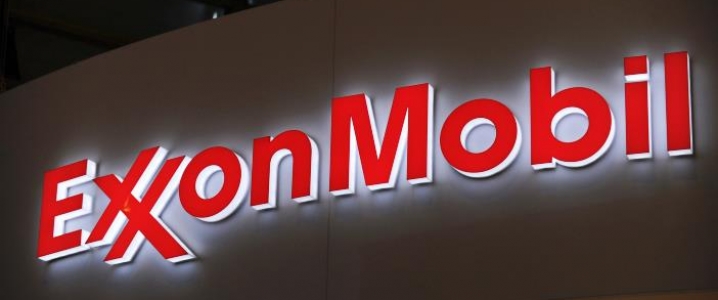As liquefied natural gas (LNG) markets mature, trying to establish itself against decades of crude oil dominance, developments far removed from most of the action are taking unusual turns that could in time impact the entire LNG value chain.
Until recently, tiny Papua New Guinea (PNG) was the envy of the world’s LNG producers. Not only did its PNG LNG export project come online without much delay but it also avoided the quandary, affecting nearby Australia whose LNG development has been marred by budget over runs running into the billions, continual project start delays and industry troubling feuds between worker groups and project developers.
PNG LNG project loses its shine
The ExxonMobil-led $19 billion PNG project came online in mid-2014 and started shipping LNG to markets in the Asia-Pacific region, which accounts for 72 percent of all global LNG demand. By 2017, the project was producing some 8.3 million tonnes of LNG, an increase of 20 percent from the original design specification of 6.9 million tonnes per annum (mtpa).
By last year, ExxonMobil’s PNG project looked as if its success would be endless. However, that storied beginning has crashed and burned.
The first crack appeared just after a destructive 7.5 magnitude earthquake struck the country’s oil and gas rich interior, triggering landslides and flattening buildings, killing at least 100 people, prompting the PNG government to declare a state of emergency. Related: Is The Oil Industry Repeating A Critical Error?
The quake also caused PNG LNG operators to stop operations to perform safety checks and repair damaged project infrastructure, which also impacted LNG markets in Asia at the time, particularly spot prices for the fuel.
PNG LNG swung back into operation by mid-April, but not without damage to the project partners’ reputation among villagers in the area which blamed gas drilling as either the main cause of the massive quake or at least as one of its main contributors. The region was also hit with a number of severe tremors in the weeks after the original earthquake.
PNG straddles the geologically active Pacific Ring of Fire, known for its geological volatility and earthquakes. Project partners, along with geologists, disputed the claims, but the goodwill that had been carefully won more than a decade ago has been lost and will be hard to win back, which has also leads to another point of contention.
Local angst
PNG government officials are now claiming that they received an unfair deal ten years ago when negotiating the terms of the PNG LNG project, and have vowed that any new projects going forward would not suffer the same fate. Peter Koim, head of the country’s Gas Project Coordinating Office and a member of the original negotiating team, said “there is a general view that Papua New Guinea gave away too much for the first LNG project. For the next round the country will not away concessions as was the case in the PNG LNG project.”
Continuing the fallout, on July 5 Exxon Mobil said that it had stopped construction in late June on its Angore gas pipeline in the country’s strife-hit highlands, after building sites were vandalized.
Related: Wood Mackenzie: Global Peak Oil Demand Expected In 2036
“All work at the Angore well pads and pipeline construction has been suspended and all impacted personnel are in the process of being demobilized or reassigned,” an ExxonMobil PNG spokeswoman said. The 7-mile (11 km) pipeline is being built to connect the gas field with the Hides gas conditioning plant, and the stop work does not affect production there, she added.
Radio New Zealand also recently reported that Angore Tiddl Appa Landowners (a PNG landowners group) has advised the government that it must resolve a dispute over unpaid LNG gas project royalties by July 18 or the venture would be "closed permanently.”
The association is demanding from the government an "infrastructure development grant" of ($9.6 mn) 32 million-kina, equity shareholder certificates for traditional landowners, 2 percent royalties every month, and for the government to complete official clan vetting for the PNG LNG project.
The government has already offered 20 million kina to the land-owners and ordered the group to halt the protesting and unrest in Angore. The landowners, however, say that if their demands aren’t met they will permanently close the LNG project by blockades and destruction of its pipeline and other infrastructure.
ADVERTISEMENT
The danger for ExxonMobil is not only how it will handle immense PR damage in the country, but also that local unrest and demands could spill over into future LNG development projects there. If PNG landowners can forge ahead and set a precedent, local landowners in other turbulent locations even globally, particularly in Mozambique, could follow, creating more difficult negotiations for affected oil majors and their projects.
In fact, not only do Western oil majors have to contend with landowners and decades of government bureaucracy and corruption in gas rich but still undeveloped Mozambique, casting doubt over the future of the country’s fledgling LNG sector, but Islamic militants are also striking back. The U.S. embassy in the country in late June said Americans should consider leaving a northeastern district close to a major gas field as imminent attacks are likely after suspected Islamist militants beheaded 10 people and killed seven others since May.
More than $30 billion is expected to be invested in Mozambique’s natural gas sector to build capacity to produce 20 million tonnes per year of LNG, with the first exports from the fields discovered seven years ago due to start after 2021.
By Tim Daiss for Oilprice.com
More Top Reads From Oilprice.com:
- Oil Slides As Saudis Gear Up To Pump Record Volume
- Chinese Oil Demand Growth Could Slow Down Soon
- U.S. Poised To Ease Biofuel Quotas


















